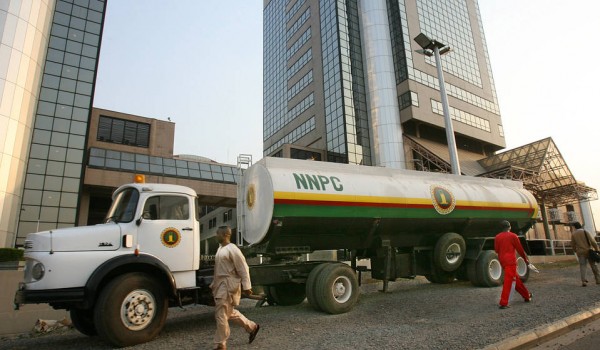
Movement is essential to life and in a country like Nigeria where individuals are largely responsible for their transportation, it is a given that transport cost takes a large chunk of the disposable income of an average Nigerian.
Since transportation fares are largely driven by fuel prices, it is believed that a rise in fuel price will impose untold hardship on the citizens. And they are not taking it lightly.
The Nigerian Labour Congress (NLC) recently “warned that the planned removal of fuel subsidy and subsequent increase in fuel price will affect every facet of life, including transportation, cost of food items, clothing, housing and others”.
A recently published report by SBM, a Lagos-based research firm, showed that fuel price is not a major determinant of transport cost in Nigeria. “Over a five-year period, petrol prices increased by 12.1%, petrol subsidy by 890% and transport cost by 283%,” the report stated.
The Nigerian government had earlier planned to remove fuel subsidies by July this year. It later shelved the plan, stating that the timing was not right. “The timing of the planned removal of petrol subsidy was “problematic” and it will worsen the suffering of Nigerians,” Minister of Finance, Zainab Ahmed said.
SBM said the fuel subsidy, which has seen an outrageous increase in the last five years, is ‘not economically justifiable’.
SBM’s position is not isolated as World Bank’s Country Director Shubham Chaudhuri stated that Nigeria’s decision to postpone the full deregulation of the downstream sector of the industry by 18 months may cost the country over N4trn in subsidy payments in 2022, adding that these subsidy payments impose a massive and unsustainable fiscal burden on the country’s economy. He said that fuel subsidy costs rose from just 4% of the oil and gas revenues in 2020 to a staggering 35% in 2021 – an equivalent of about 2% of GDP.
A World Bank report released in November 2021 added that rebounding oil prices also increased the cost of the PMS subsidy by raising the price of imported PMS from less than US$200 per ton in April 2020 to US$840 per ton by November 2021, causing net oil and gas revenues transferred to the federation account by the Nigerian National Petroleum Corporation (NNPC) to plunge from N1.1 trillion to N0.5 trillion.
Moreover, oil prices have hit a record-high of $118.11/barrel due to Russia’s invasion of Ukraine.
The implication for Nigeria is that fuel subsidy costs could rise by 100 percent, thus making it difficult for Nigeria to benefit from the global oil boom.
This does not look good for a country that is heavily reliant on oil for most of its revenue. The effect is that the funds spent on fuel subsidy “continues to take up a significant portion of government funds that would have been better spent on social services and infrastructure, such as roads and health care,” the SBM report stated.
“In 2017, the NNPC said that it spent ₦144.53 billion in subsidising petrol, and by 2021, subsidy had gulped ₦1,428 trillion, a whooping 890% increase,” the report stated.
The result of this increased spending is an artificial holding down of fuel price which in turn makes Nigeria the West African country with the lowest fuel price despite the increase in global oil prices.
The highest Nigerians paid at the pump over the five-year period was ₦165 for a litre of Premium Motor Spirit (PMS), a 12.1% increase above the ₦145/litre cost as at 2017, if only official rates are considered.
“Although the price of petrol has only risen marginally in that period – whether taken by itself or in comparison to its cost elements – transportation costs across the country have not risen at the same pace. Instead, they have risen more significantly,” the report stated, adding that the lowest transport cost in 2021 was 2.4 times higher than the average cost in 2017.
With petrol constantly being smuggled out of the country to neighbouring countries such as the Republic of Benin, Cameroon and Niger by the rich, the powerful and small-time smugglers, it means Nigeria is, albeit unwittingly, indirectly subsidising part of the fuel consumed in those countries.
A major highlight of the SBM report reads, “Between December 2019 and May 2020, cost of transport spiked by 208%, the highest increase within 2017 and 2020. This was at a time when the country was hit by COVID-19. Around this time (April to June 2020), petrol price was reduced to ₦125, yet transport cost didn’t reduce. By May 2020, transport cost had skyrocketed to ₦611.92 making it one of the months that saw the lowest fuel price and the highest transport cost.
This only confirms that transport cost in Nigeria is not driven solely by fuel price. By the end of 2020, the cost of fuel subsidy amounted to ₦1.192 trillion, more than double the cost for 2019. Similarly, the cost of transport as at December 2020 had doubled what it was as at January 2019.”
Clearly, the cost of financing fuel subsidy poses a strain on Nigeria’s struggling economy after the NNPC requested for another ₦3 trillion to fund the subsidy for this year. From all indications, the cost of subsidising fuel far outweighs the acclaimed benefits.
While the average Nigerian continues to believe that the sustenance of fuel subsidy is to the citizens’ advantage, the World Bank in the November 2021 edition of its Nigeria Development Update tagged “Time for Business Unusual”, revealed that “the benefits of the PMS subsidy overwhelmingly accrue to wealthier households, and a large share is captured by smugglers and black marketeers. Households in the bottom 40% of the income distribution account for less than 3% of all gasoline purchases.”
END

Be the first to comment